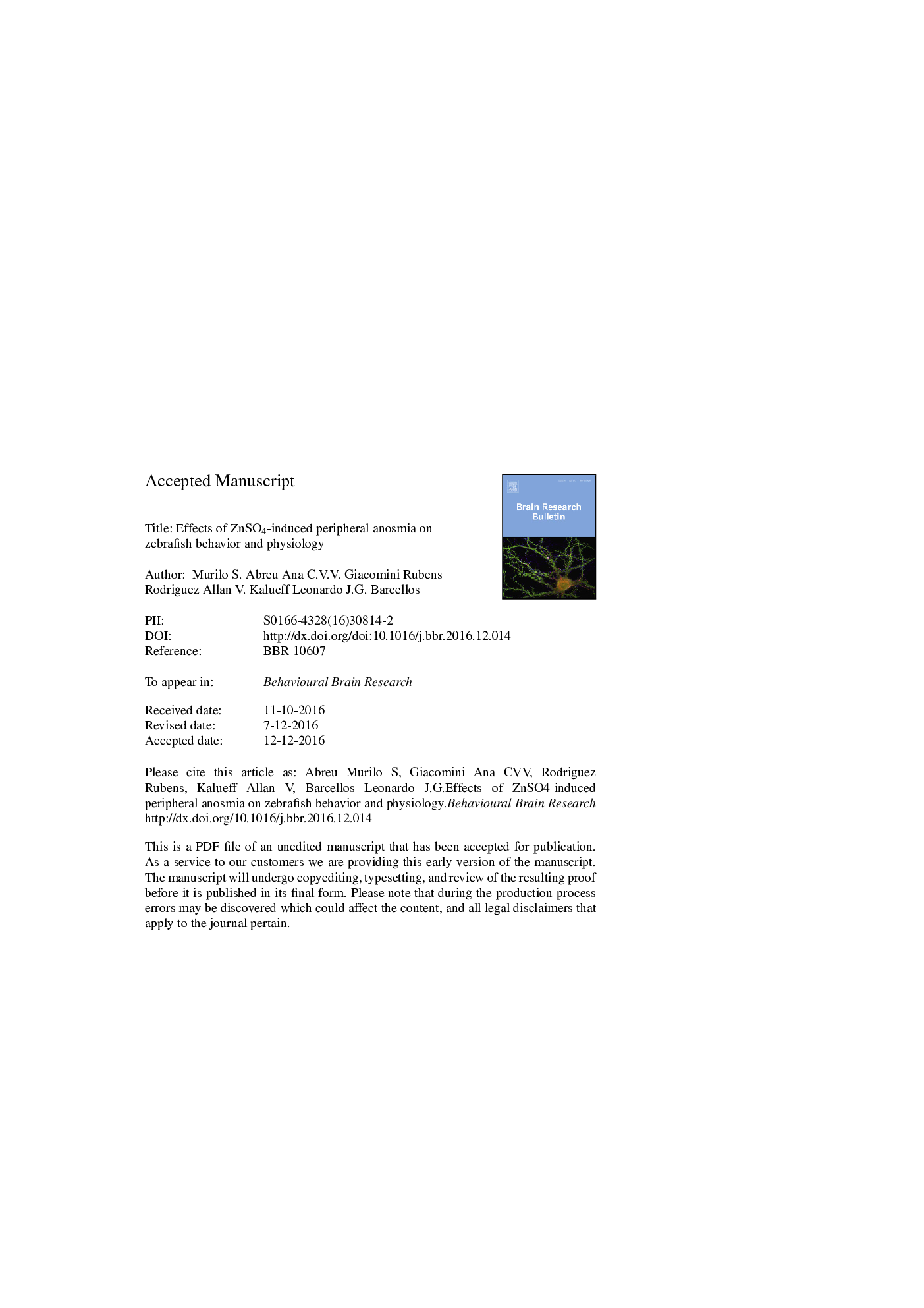| Article ID | Journal | Published Year | Pages | File Type |
|---|---|---|---|---|
| 5735669 | Behavioural Brain Research | 2017 | 22 Pages |
Abstract
Olfaction plays a key role in modulating behavioral and physiological responses of various animal species, including fishes. Olfactory deficits can be induced in fish experimentally, and utilized to examine the role of olfaction in their normal and pathological behaviors. Here, we examine whether experimental anosmia, evoked by ZnSO4 in adult zebrafish can be associated with behavioral and/or physiological responses. We show that experimental ZnSO4-induced anosmia caused acute, but not prolonged, anxiogenic-like effects on zebrafish behavior tested in the novel tank test. The procedure also elevated whole-body cortisol levels in zebrafish. Moreover, ZnSO4 treatment, but not sham, produced damage to olfactory epithelium, inducing overt basal cell vacuolization and intercellular edema. The loss of olfaction, assessed by the fish food preference behavior in the aquatic Y-maze, was present 1Â h, but not 24Â h, after the treatment. Collectively, this suggests that transient experimental anosmia by ZnSO4 modulates zebrafish behavior and olfaction, which can be used to evoke and assess their stress-related anxiety-like states.
Related Topics
Life Sciences
Neuroscience
Behavioral Neuroscience
Authors
Murilo S. Abreu, Ana C.V.V. Giacomini, Rubens Rodriguez, Allan V. Kalueff, Leonardo J.G. Barcellos,
